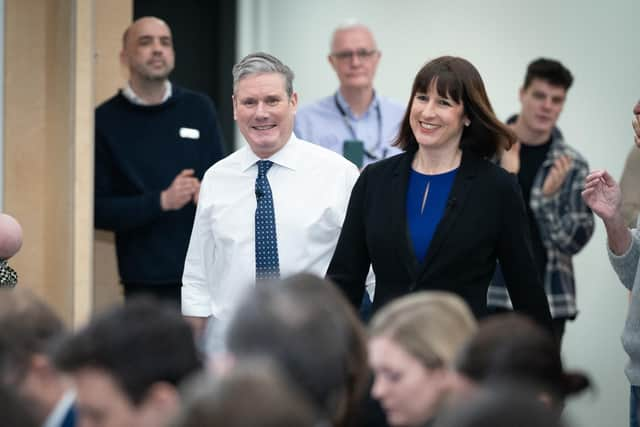Labour's baby steps on Brexit don't go far enough: Yorkshire Post Letters
Brexit at least got a passing mention in the latest column by Rachel Reeves (The Yorkshire Post, June 3).
Often, the Shadow Chancellor and Leeds West MP risks Labour’s credibility on the economy by avoiding the topic altogether in her columns. A step in the right direction, then.
Advertisement
Hide AdAdvertisement
Hide AdBut only a tiny, barely perceptible one. Her words hardly reflect the scale of the problems Labour will inherit from the Conservative Party if it gains power and Ms Reeves takes up residence at 11 Downing Street.


Saying a Labour Government will somehow “fix the holes in the paper-thin Tory Brexit deal” – while remaining outside the European Union – looks fanciful. Especially with leader Sir Keir Starmer still ruling out even a limited non-member, Norway-style single market trade access agreement.
Frequently, it seems Labour strategists have been caught out by how quickly the grim reality of leaving the European Union has emerged and the public’s appetite to see it reversed has grown.
Baby steps on Brexit by Ms Reeves are better than nothing. But Labour is leaving itself with little time and a lot of work to do if it wants to persuade voters ahead of a General Election it’s got solutions to the dire consequences of Boris Johnson’s Brexit deal.
From: Tony Galbraith, Chantreys Drive, Elloughton, Brough.
Advertisement
Hide AdAdvertisement
Hide AdFor once, I agree with a point made by Peter Brown in one of his letters (The Yorkshire Post, May 25). In assessing the impact of Brexit, it is better to ignore all computer-based projections about our future economic performance. They are usually wrong, and prone to manipulation to obtain the result the programmer is hoping for. Far better to stick to the verifiable facts about the past and present performances.
In economic terms, before voting to leave the EU in 2016, the UK was paying a net membership fee of about £10 billion. We had an annual balance of trade deficit of about £120 billion in goods, which was marginally offset by a balance of trade surplus on services of about £40 billion. These are facts, but of course interpretation of facts is another matter. I interpret these facts as meaning that UK membership of the EU was disastrous for our economy, particularly manufacturing. I fail to see how any other interpretation could be justified.
During the 2016 campaign, Remainers put forward the suggestions that for us to leave the EU would result in a massive increase in unemployment, that house prices would immediately fall somewhere between 10 and 20 percent and that the number of jobs lost from the City of London would be around 100,000. Seven years later, the fact is that none of these predictions have come true. I interpret this fact as a sign that we have lost very little by leaving the EU.
I have now begun to wonder if there were any significant benefits at all from our membership of the EU. By this, I mean that the so-called benefits were actually, in large measure, available to non-EU members or were beneficial to a tiny minority of British people – say no more than two percent. Certainly, I can’t think of anything to set against the massive economic damage done to us by our EU membership.
